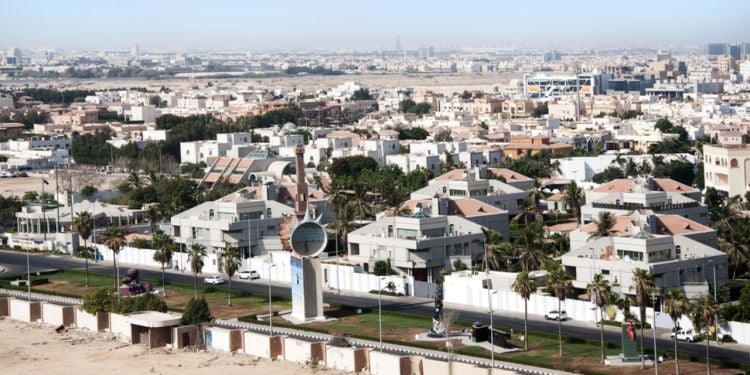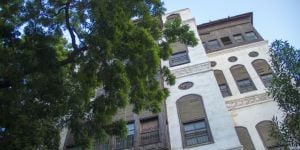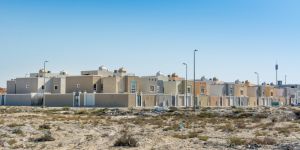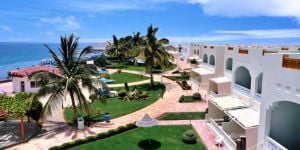
Jeddah is often dubbed the 'New York' of Saudi Arabia. It is heavily populated, hosting the most diverse expat community in the region. With millions of foreigners calling Jeddah home, finding accommodation here can get a bit hectic.
Jeddah is a commercial hub; here, you can find the most significant retail sectors. Many merchants stock their businesses from stock that is produced/sold in Jeddah to be then sold across the country. Jeddah is home to many of the larger distribution centers in Saudi Arabia, including PEPSI and UNILEVER. The city hosts the headquarters of the national carrier - Saudia. With its historical significance and location, overlooking the Red Sea, the maritime capital of the Kingdom is a good place for living. While the whole country has been under the influence of ongoing reforms for a long time, Jeddah has been famous for its relaxed and comfortable atmosphere and lifestyle.
Buy or rent property in Jeddah?
Buying property is not common among expats in Saudi Arabia. In fact, even Saudi citizens can hardly afford to purchase accommodation, the prices of which can be extremely high.
Usually, the ownership of land by non-Saudis is connected with investment initiatives. Recently, the government adopted a law concerning special privilege iqamas/ premium residence permits. Holders of a Premium Residency can own and rent property.
If you cannot afford the special iqama, which costs around SAR 800,000 for permanent residence or SAR 100,000 for renewable iqama, you will probably opt for renting accommodation — typically, in Western-style compounds.
Renting accommodation here is less expensive than in the neighboring United Arab Emirates and Qatar. Plus, a big modern city like Jeddah does offer a number of different rental accommodation options suitable for expats.
Types of accommodation in Jeddah
As a hub of business, innovation and urbanization, Jeddah is one of the most popular cities for expats in Saudi Arabia. It also offers a variety of accommodation options for different budgets.
Most expats living in Jeddah prefer to settle in Western-style compounds, which are basically insulated small neighborhoods with an abundance of amenities within their walls. Within these compounds, life is pretty much unaffected by the outside world: you can dress and behave as you would back home as long as you do this within the walls of the compound. Naturally, this is a very convenient housing option for most newcomers to the country.
Most compounds have well-developed facilities and, when living here, you will have access to parks, gardens, swimming pools, convenience stores, coffee shops, restaurants, preschools and more.
As for the housing itself, you are likely to find a few options: from standard apartments to condos and standalone villas.
In the city and outside the compound life, you will find standard apartment options: from one to three or more bedrooms. A lot of the buildings you will find in Jeddah are low-rises with between four to eight floors.
Apartments for rent in Jeddah come as furnished, semi-furnished or unfurnished. Fully furnished apartments are ready for you to move into. Semi-furnished places generally have some basic furnishing (bed, chairs, carpeting, etc.) and appliances (refrigerator, washing machine, etc.). Unfurnished apartments, on the other hand, are mostly empty and ready for you to equip as you see fit.
In the city, you will also find standalone villas and townhouses. Note that when these are located outside the compound, you will need to make more adjustments in your lifestyle to suit local customs. Villas and townhouses generally have three or more bedrooms and may also feature a garden.
Good to know:
Jeddah is a diverse and cosmopolitan city with a variety of ethnic communities. Here, you will find whole neighborhoods where specific ethnic groups prefer to settle. In these neighborhoods, you will hear people speaking their native language and will also find lots of shops selling products from specific areas.
Rental costs in Jeddah
How much you will need to pay for rent in Jeddah depends on several factors. Do you live in a compound or standalone apartment? Which neighborhood are you settled in? How many rooms do you have, and what services are included in building management?
Rent in Saudi Arabia is typically paid annually or in several installments. Monthly rent payments are also an option with some landlords.
Here is a rough estimate of rental costs in Jeddah:
- Studio (room with open kitchen, bathroom) - SAR 18,000 - SAR 30,000/per year (USD 4,800 - 8,000)
- 1-bedroom (kitchen, bedroom, washroom) - SAR 25,000 - SAR 45,000/per year (USD 6,666 - 12,000)
- 3-bedroom (a living room, 2 bedrooms, kitchen, washroom) - SAR 50,000 - SAR 80,000/year (USD13,333 - 21,333)
Compound options tend to be more expensive, starting at around SAR 3,500 per month.
Rent prices also differ depending on the neighborhood with northern areas being more expensive than the south.
Note that rental price negotiations are quite common, and you may be able to get a better deal on a place you like.
Good to know:
Rental prices in Jeddah (and across Saudi Arabia) tend to fluctuate quite a bit. This is why it is recommended to keep an eye on the rental websites mentioned below for the most up-to-date information.
When renting housing in Jeddah as an expat you will probably go through a real estate agent (recommended).
Additional expenses you may incur are agent fees (this should be SAR 2,500), utilities and compound management fees.
If you are renting in a compound, most utilities (water, gas, electricity, landline, internet, etc.) will typically be included in the rent price.
In standalone buildings, you will typically be responsible for handling utility costs (unless a different arrangement has been made with the landlord). However, your landlord will be the one responsible for maintaining common areas.
Signing a rental contract in Jeddah
Renting an apartment in Jeddah is not particularly difficult — but it is important to carefully look through your rental contract and know what to expect.
Rental contracts are typically signed for a year. In a lot of cases, as mentioned above, rent has to be paid in advance or in installments via post-dated checks: you may be asked for two checks or quarterly checks.
Paying the rent monthly is also an option — but it is typically only available in compounds that are used to dealing with expats.
When signing the lease, you will need to pay a refundable security deposit — usually, it is the equivalent of a month's rent. You will get your security deposit back at the end of the lease if no damage has been done to the property.
In most cases, to sign the lease in Saudi Arabia, you will need the following documents:
- Your Iqama (residency permit);
- Originals and copies of your passport and visa;
- Marriage certificate (if you are renting with your spouse);
- A letter from your employer specifying your salary and position (in some cases).
The government launched a platform to regulate the market and protect both the owner and tenants. Every rental contract should now be signed and paid for on the Ejar platform. A typical rental contract in Saudi Arabia can be quite detailed. This is why it is essential to carefully read through every clause and make sure you understand all your responsibilities as a tenant. For instance, most landlords wouldn't allow pets. There are also strict rules when it comes to guests of the opposite sex if you are single. So, make sure you check every clause of the contract before finally signing on the dotted line (or the electronic platform!).
Good to know:
To register in the Ejar system, you will need to upload a copy of the rental agreement and provide basic information about yourself and the landlord. Note that if you don't register in the Ejar system as a tenant, your Iqama (residence permit) may not be renewed.
Important:
If your rental contract is in Arabic and you don't have a good command of the language, it's very important that you have it translated into English (or another language you prefer). Never sign a contract if you don't completely understand any of its clauses.
The rental contract may also outline the rights and obligations of both the landlord and the tenant. Typically, the tenant will need to:
- Make sure that the payments are made on time and that the checks don't bounce;
- Keep the rented property well-maintained;
- Abide by all the terms and conditions outlined in the rental agreement;
- Avoid creating any disturbances for the neighbors;
- Pay utilities and other related bills without delay;
- Not use the property for commercial or industrial purposes;
- Not sublet the property to other parties (unless this has been approved by the landlord).
The landlord must:
- Hand over the place to the tenant in a proper state;
- Provide receipts to the tenant of all the checks received;
- Make sure public areas in the building are well-maintained;
- Perform all needed repairs in a timely manner (as agreed upon in the rental contract);
- Guarantee the tenant's privacy and not visit the rented property without prior agreement;
- Keep the rent price the same throughout the duration of the contract.
How to find a place to rent in Jeddah?
In many cases, if you are moving to Saudi Arabia for work, your employment contract will include accommodation. If it does, your employer will typically take care of all the arrangements, and you won't have to worry about apartment hunting.
If your employer doesn't provide accommodation, you will need to look for a place on your own, but you can still obtain a housing allowance.
A good place to start looking for housing is to search online. You can check out the most recent available rental listings in Jeddah here: Bayut, PropertyFinder, Zaahib, Aqar, and others.
Another option is to scan local English newspapers. Most of these will have a housing section where you will find available rentals in your region. A typical rental ad will include the description of the accommodation (compound, neighborhood, number of rooms and bathrooms, size, etc.) as well as payment options. Generally, the cost of rent in Saudi Arabia is established on an annual basis and paid in several installments — typically, four installments. If you can pay rent in fewer installments or pay the whole sum upfront, you will often be offered a discount.
Monthly rent options are also available — but this is something you should discuss with your landlord.
If you have acquaintances in the city, it may be a good idea to get them involved and help you out with your search. You can also ask for assistance from your employer and colleagues.
Social media can prove to be a useful apartment hunting tool as well. Run a search for real estate related Facebook groups in your area and check if they have any listings that you find interesting.
Finally, if you've had time to explore Jeddah and have your heart set on a particular compound, you can simply stop by and talk to the building manager about any available rental options in the compound.
Tips for renting in Jeddah
To make sure your move to Jeddah goes smoothly, make sure to do lots of research prior to making any arrangements. Here are some basic strategies to follow:
Even if your employer is the one in charge of your housing arrangements, it's important to carefully look over your rental contract before signing it. Make sure to have an English (or another language) copy of the original contract — and get it notarized as well.
Make sure to do a proper inspection of the property before signing the lease. For example, make a list of all the furnishings and appliances in the apartment and take note if anything is damaged or in need of repair.
Prior to renting a property, make sure to do a proper tour of the neighborhood so that you have a good idea of what to expect. Check if all the amenities you need are easily accessible and that you feel comfortable in these surroundings.
Save the receipt for your deposit until the end of your lease. You will need to present it to your landlord to get your security deposit back.
When renting outside a compound, do your best to follow local social norms. For instance, during the Holy Month of Ramadan, you will need to abstain from eating, drinking and smoking in public during the designated hours.
Note that Friday is a day off in Saudi Arabia and if you need to have any repairs or maintenance work done, take this into account when making arrangements. Many companies will be open for business after 4 pm on Friday.
Once you've handled all the formalities, signed the lease, paid the deposit and rent, you will be ready to move into your new apartment. Most apartments advertised on real estate websites are ready to move in once the lease is signed. If you are renting in a compound, note that there may be a waiting list in place if the building you are moving into is particularly popular. In this case, you will need to time your move accordingly or book a hotel while you are waiting for your place to become available.
We do our best to provide accurate and up to date information. However, if you have noticed any inaccuracies in this article, please let us know in the comments section below.












Comments